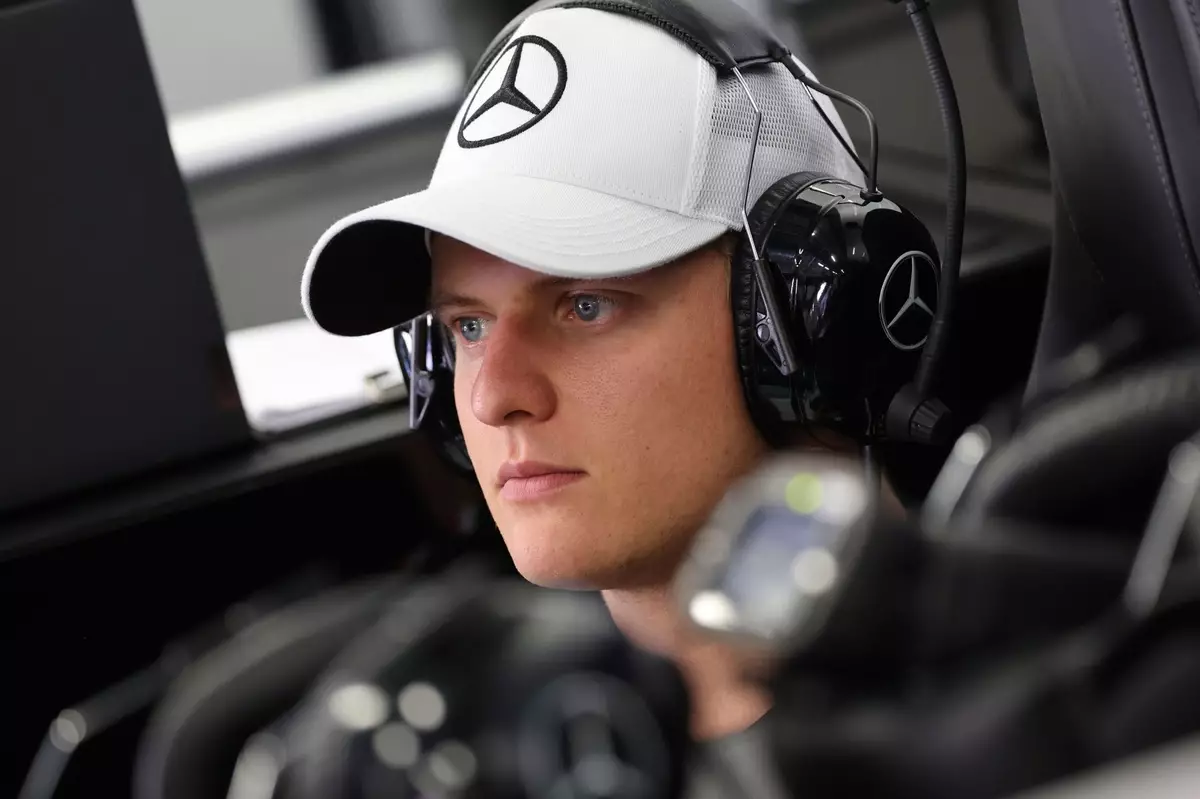Mick Schumacher, the promising German driver and son of the legendary Michael Schumacher, is currently navigating a critical juncture in his racing career. After spending the past two seasons as a reserve driver for the Mercedes-AMG Petronas Formula One Team, his hopes of returning to the main grid appear contingent upon developments at the Audi-owned Sauber team. With the 2025 season in sight, Schumacher represents an intriguing choice for Sauber’s vacant seat alongside Nico Hulkenberg.
Schumacher’s journey in Formula 1 has not been devoid of challenges. Following his departure from Haas at the conclusion of the 2022 season, he found himself in the precarious position of a reserve driver. His aspirations to secure a seat with the Alpine team were dashed when rookie Jack Doohan was selected instead. This decision left him with limited options, as Alpine had previously seemed like a strong contender to welcome Schumacher back to the sport in which his lineage has left an indelible mark.
The narrative surrounding Schumacher reflects the competitive nature of F1. Many talented drivers vie for a limited number of seats, and the shifting dynamics at each team can often leave potential contenders in a state of uncertainty. Schumacher’s experience as a reserve driver offered him the chance to remain connected to the paddock but did not provide the competitive platform necessary for his career revival.
With Audi assuming ownership of Sauber, the team is exploring its options for the upcoming seasons. The newly appointed chief Mattia Binotto appears keen on making strategic hires that align with the long-term vision of the Audi project. In an insightful interview with the Italian newspaper Corriere della Sera, Binotto articulated his approach to assembling a driver line-up, emphasizing the need for a balance between experience and youthful talent.
Schumacher’s name has resurfaced in Binotto’s discussions, reflecting the committee’s willingness to consider a diverse range of candidates in their selection process. Binotto’s acknowledgment of Schumacher’s strengths highlights the foundations laid during his time in the Ferrari Driver Academy, where Schumacher developed valuable skills that could serve Sauber well in its mission for advancement.
However, the stakes are high, as the team must carefully evaluate the trade-offs between seasoned drivers like Valtteri Bottas and emerging talents like Gabriel Bortoleto. Binotto is astutely aware that choosing the right co-driver for Hulkenberg could significantly impact Sauber’s trajectory amid heightened competition in the F1 landscape.
Reflecting on Sauber’s aspirations, Binotto suggested that the team is in the nascent stages of an ambitious journey. With the analogy of climbing Everest, he alluded to the arduous efforts required to compete at the summit of Formula 1. This metaphor serves as a reminder of the extensive investment in talent and resources necessary to elevate the team’s status.
Binotto’s realistic outlook acknowledges the necessity for gradual development rather than immediate success. He compared Sauber’s anticipated progress with established teams such as Mercedes and Ferrari, highlighting their long-term endeavors. The implication is clear: any driver joining Sauber must be committed to a multi-year journey to establish competitive prowess.
In essence, this strategic outlook invites Schumacher and his potential partners to consider their roles in a larger context. Are they willing to commit to the evolution of a team instead of chasing quick wins? The transition for Schumacher from reserve driver to a pivotal role may necessitate patience as well as a future-oriented mindset centered around growth.
For Mick Schumacher, the prospect of rejoining Formula 1 with Audi’s Sauber team symbolizes not only a potential revival of his career but also an opportunity for redemption. Should he secure a seat, it would test his resilience and talent against a backdrop of unprecedented competition.
The coming months will be crucial, as Audi and its leadership enact decisions that could shape the trajectory of not only Schumacher’s career but also the future identity of the Sauber racing team. In a sport that prioritizes quick results, the strategic planning evident in Audi’s approach could yield long-term dividends, making the next steps vital for all involved. As F1 continues to evolve, fans and team personnel alike will be watching closely to see if Schumacher can reclaim his rightful place on the grid, ready to embrace the challenges ahead.


Leave a Reply